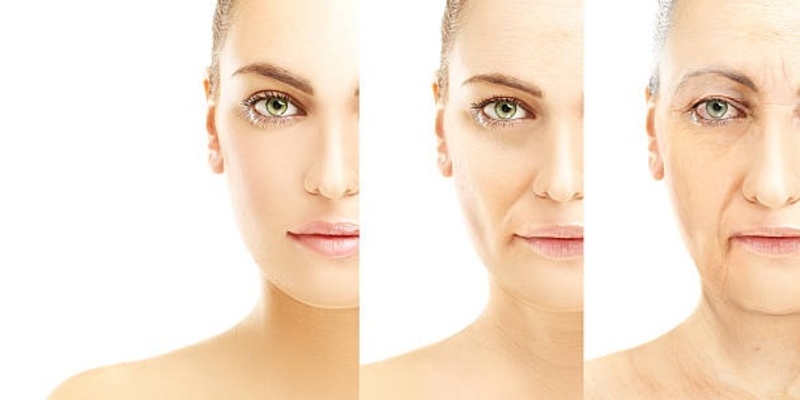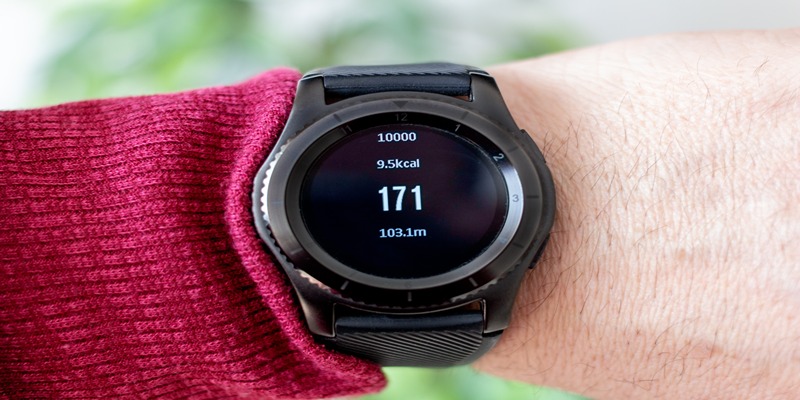Aging is a natural progression, reflected most prominently in our skin's changes. "Turning Back the Clock: How to Combat Skin Aging with Science" explores groundbreaking research and treatments that target the slowdown and potential reversal of skin aging effects. This insightful journey uncovers effective methodologies for preserving youthfulness, ranging from advanced skincare technologies to innovative dietary approaches. Join us in unraveling how science unveils the keys to maintaining a luminous, youthful skin well into our later years.
Understanding skin aging:
Before delving into science-backed strategies to combat skin aging, it's crucial to grasp the factors contributing to skin aging. Our skin comprises three layers: the epidermis (outermost layer), dermis (middle layer), and subcutis (innermost layer). The epidermis shields us from external elements like UV radiation, while the dermis contains connective tissue providing skin elasticity and strength. The subcutis consists of fat cells that offer organ insulation and cushioning. With age, all three skin layers undergo transformations. The epidermis thins, becoming more vulnerable to damage and dehydration.
As our dermal layer depletes collagen and elastin, crucial for skin's firmness and suppleness, fine lines, wrinkles, and sagging skin emerge. Furthermore, the subcutis diminishes, reducing volume and plumpness in our facial features.
The Science of Skin Aging:

Several factors contribute to skin aging, such as genetics, lifestyle choices, and environmental pollutants. However, a crucial element in this process is oxidative stress. Oxidative stress arises from the imbalance between free radicals (unstable molecules) production and the body's antioxidant defense. These free radicals can harm skin cells, accelerating aging. Moreover, as we grow older, collagen and elastin production decreases, intensifying the impact of oxidative stress on our skin.
Biological factors that contribute to skin aging:
Our genetic composition greatly influences the aging process of our skin. Specific genes impact collagen and elastin production rates, along with the efficiency of our body's antioxidant mechanisms. Hence, certain individuals may exhibit a more graceful aging process compared to others.
Lifestyle choices that accelerate skin aging:
Our environment and lifestyle play a significant role in accelerating skin aging. Factors like UV exposure, pollution, and smoking can trigger oxidative stress, harming skin cells. Moreover, unhealthy eating patterns and sedentary lifestyles can fuel body inflammation, hastening the aging process.
Fighting Skin Aging with Science:
Thanks to continuous research and technological advancements, we have gained a deeper insight into skin aging and effective ways to address it. Below are science-supported tactics to rejuvenate our skin and reverse the signs of aging:
Topical Treatments:
A vast range of topical creams, serums, and oils flood the market, promising to defy aging. Despite temporary effects from some, it's crucial to seek out products with verified components like retinoids, Vitamin C, and hyaluronic acid. Scientifically validated, these ingredients boost collagen synthesis, enhance skin quality, and amplify hydration levels.
Non-Invasive Procedures:
To achieve more precise outcomes, opt for non-invasive procedures like laser treatments, microdermabrasion, and chemical peels to enhance the look of aging skin. These methods boost collagen production, eliminate dead skin cells, and encourage cell turnover for a rejuvenated complexion.
Dietary Interventions:
The food we consume plays a crucial role in our skin's health and appearance. A diet abundant in antioxidants, healthy fats, and nutrients that enhance collagen production can combat oxidative stress and support the regeneration of skin cells. Furthermore, integrating supplements like collagen peptides or hyaluronic acid can offer additional anti-aging advantages.
Next-Level Solutions:
For those seeking more advanced skincare options, there are cutting-edge solutions that leverage scientific advancements to combat skin aging. These treatments encompass injectables such as Botox and fillers, which diminish wrinkles and replenish facial volume. Additionally, sophisticated procedures like radiofrequency and ultrasound therapy employ heat to boost collagen production, resulting in firmer, tighter skin.
Non-Surgical Interventions:

In the past, plastic surgery was the typical choice for combating skin aging. Nowadays, non-surgical alternatives offer comparable outcomes with reduced downtime and risks. Examples are thread lifts, utilizing dissolvable threads to elevate drooping skin, and ultherapy, a non-invasive method harnessing ultrasound technology to boost collagen production.
Range of non-invasive procedures:
Given the rise in popularity of non-invasive procedures, it's crucial to grasp the array of options at hand. Each procedure offers distinct advantages and targets specific areas. Therefore, seeking guidance from a certified expert is vital to pinpoint the most suitable treatment for your skin issues.
The Role of Technology and Innovation:
Technological advancements and innovation have made a substantial impact in combating skin aging. This includes home devices utilizing LED light therapy to boost collagen production, as well as AI-driven skincare systems customizing regimens to individual skin profiles. Technology is continuously transforming the anti-aging sector.
The Future of Anti-Aging:
The future of anti-aging appears promising, as ongoing research and discoveries illuminate the aging process and strategies to address it. With an increasing focus on preventive care and tailored treatments, we anticipate the emergence of even more groundbreaking solutions in the future. By grasping the science underlying skin aging and leveraging these advancements, we can all age gracefully and confidently.
Conclusion:
A vast array of knowledge and resources is at our fingertips to combat skin aging. By grasping the biological aspects, making wise lifestyle choices, and employing evidence-based techniques, we can gracefully and confidently navigate the aging journey. Let's leverage technological innovations and make skin health a priority for a youthful and radiant look. With the right mindset, we can embrace aging and exude confidence at any stage of life. Let's bid farewell to the fear of aging and welcome a future of radiant, healthy skin! Embrace the potential of science to empower our skin's health for a more confident and beautiful tomorrow.




